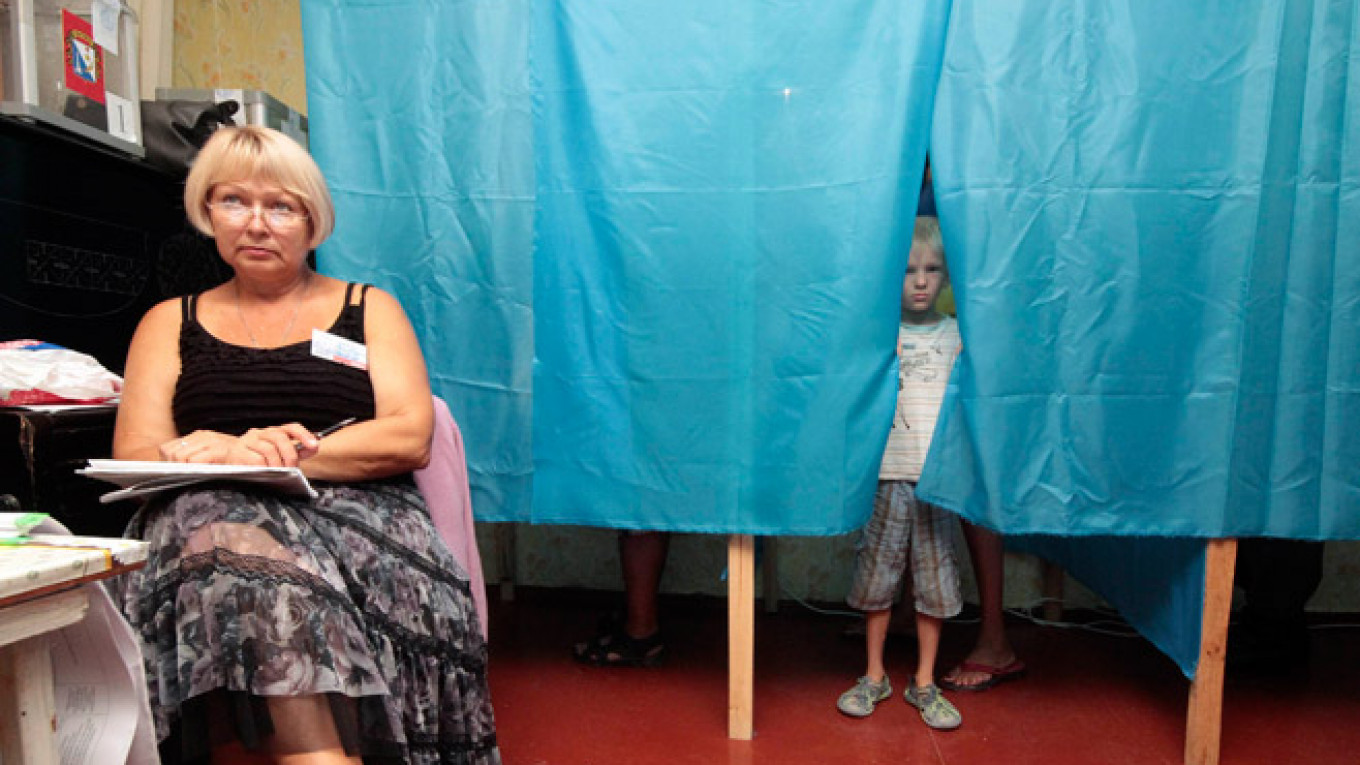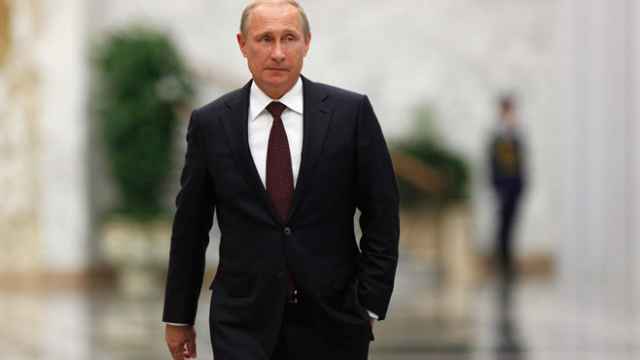Democracy is important to most Russians, but they can't seem to agree on what exactly it is, according to a survey published Monday.
In the survey, conducted by the state-run pollster Public Opinion Foundation and published by the Kommersant newspaper Monday, 63 percent of respondents said it was important for Russia to have democracy, while another 16 percent said it made no difference to them personally whether Russia was ruled by a democratic system or not.
Twenty-seven percent of respondents said Russia's most democratic period was the current one, under President Vladimir Putin, while another 12 percent said Putin's previous two terms were more democratic.
Putin has faced harsh criticism from the West in recent months over ongoing events in Ukraine. Russia's annexation of Crimea in March and accusations of Russian support for separatists in eastern Ukraine have prompted some Western leaders to compare Putin to a tyrant.
But many respondents to the poll seemed to disagree, with one-third saying Russia currently had "as much democracy as is necessary."
Twenty-two percent said there was not much democracy in the country and that transparency and free speech were lacking. Another 11 percent said there is too much democracy, lamenting the fact that "everything is permitted, and everyone does what they want," Kommersant reported.
The poll's results also revealed that there was no common consensus on what exactly democracy entailed, with 43 percent of respondents saying democracy meant "transparency, free speech and free elections" as well as "upholding human rights," while another 12 percent described it as ordinary citizens taking part in the country's management.
Another third of respondents said they could not define democracy.
Analyst Grigory Kertman expressed skepticism about the survey's results in comments to Kommersant, saying most respondents were just giving the "socially acceptable response."
"For all the predictability and manageability of the elections, people value the right to vote," Kertman said, adding, however, that for most people elections were nothing more than a "form of dialogue with the authorities."
Contact the author at a.quinn@imedia.ru
A Message from The Moscow Times:
Dear readers,
We are facing unprecedented challenges. Russia's Prosecutor General's Office has designated The Moscow Times as an "undesirable" organization, criminalizing our work and putting our staff at risk of prosecution. This follows our earlier unjust labeling as a "foreign agent."
These actions are direct attempts to silence independent journalism in Russia. The authorities claim our work "discredits the decisions of the Russian leadership." We see things differently: we strive to provide accurate, unbiased reporting on Russia.
We, the journalists of The Moscow Times, refuse to be silenced. But to continue our work, we need your help.
Your support, no matter how small, makes a world of difference. If you can, please support us monthly starting from just $2. It's quick to set up, and every contribution makes a significant impact.
By supporting The Moscow Times, you're defending open, independent journalism in the face of repression. Thank you for standing with us.
Remind me later.






